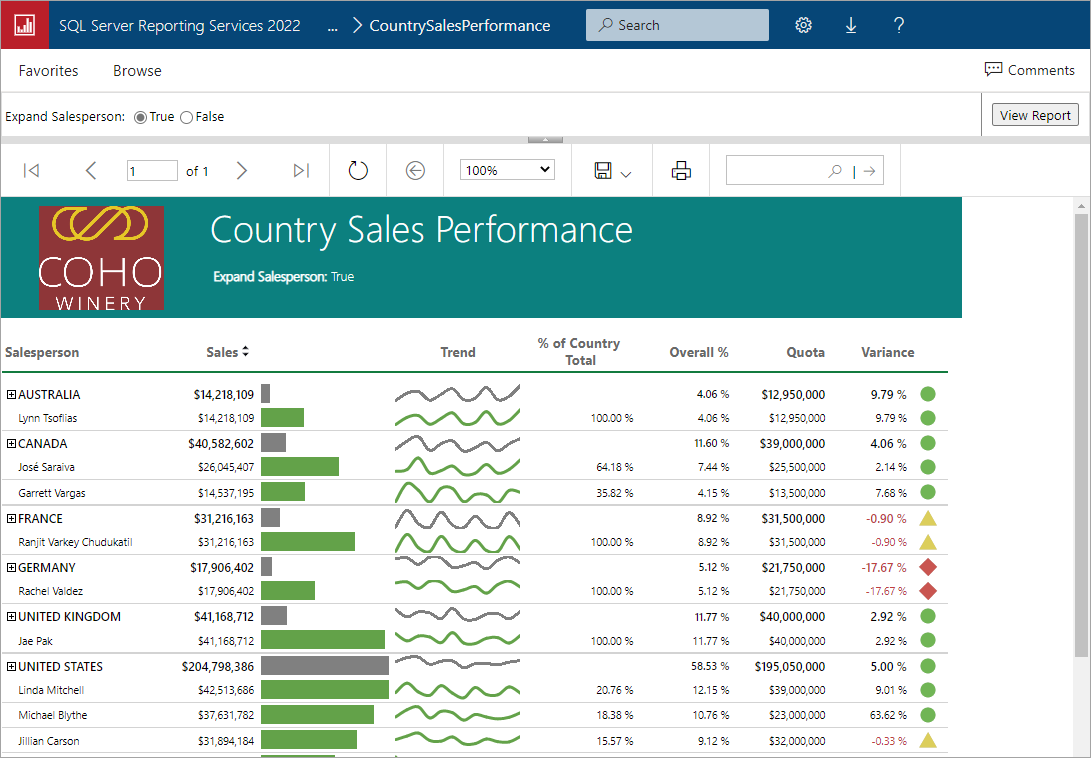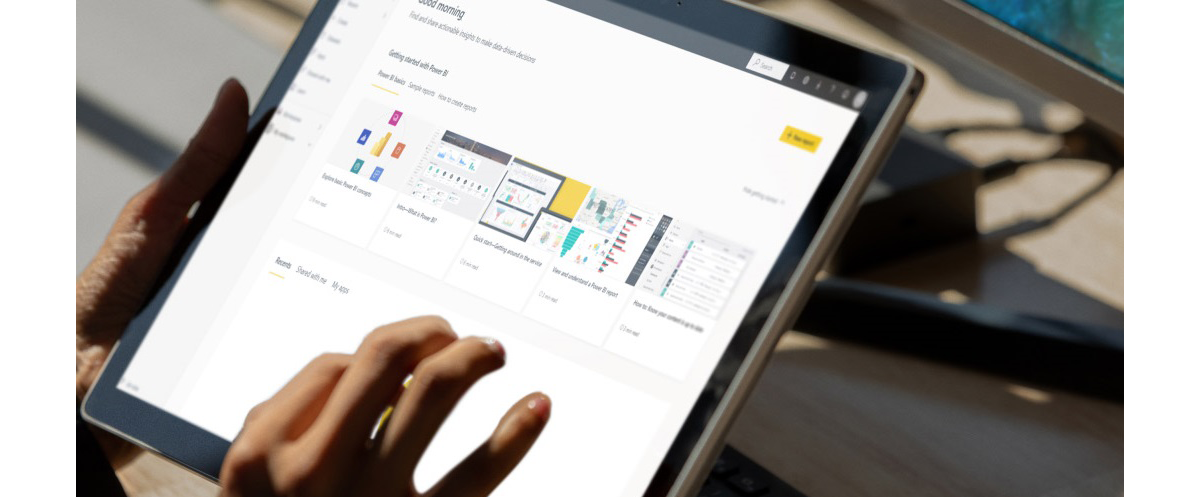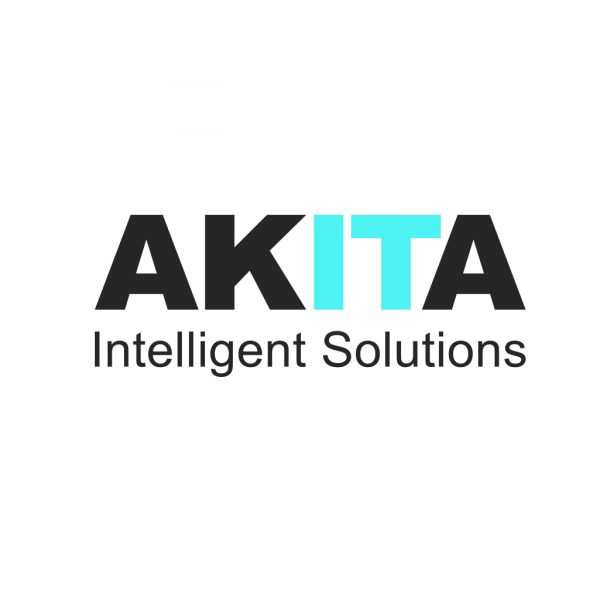Data visualisation is key for fast-moving organisations to understand their key information.
When organisations often find themselves choosing between two prominent solutions: Power BI vs SQL Server Reporting Services (SSRS). Both are powerful, but they serve different purposes. It’s therefore essential to understand Power BI vs SSRS to assess their core differences, strengths, and limitations to determine the best fit for your business needs.
Understanding Power BI vs SSRS
Microsoft Power BI is a modern business analytics tool developed by Microsoft, designed to create interactive reports and dashboards that provide real-time insights. It excels at transforming raw data into visually engaging reports, accessible across various devices.
SQL Server Reporting Services (SSRS), also from Microsoft, is a traditional server-based report generation software designed for delivering structured, paginated reports. SSRS is highly suitable for enterprises that need a comprehensive reporting tool for high-volume data and require pixel-perfect reports for compliance and regulatory purposes.

Power BI vs SSRS: What Are The Key Differences?
Purpose and Use Cases
Power BI is primarily built for data exploration, allowing users to drill down into data and discover trends. It excels in providing dashboards, visualisation, and ad-hoc reporting. Power BI is often used by business users and analysts who need a more intuitive interface to create interactive and dynamic reports with ease.
SSRS, on the other hand, is used for operational reporting. It is best suited for businesses that need detailed, structured reports, often in tabular or matrix formats. These reports are commonly used by technical users or departments that deal with compliance-heavy reporting.
Report Types
Power BI is known for its wide range of visualisation options, from standard bar charts to advanced custom visuals. Reports are interactive, enabling users to filter and manipulate data in real time, making it ideal for dynamic presentations.
SSRS focuses on paginated reports, which are static and formatted for printing or exporting to formats such as PDF. While it offers fewer visualisation options compared to Power BI, SSRS reports are highly customisable in terms of layout and formatting.
Data Handling and Integration
Power BI connects to a vast number of data sources, including Excel, SQL databases, cloud platforms, and various third-party applications. Its ability to handle real-time data is a significant advantage, allowing businesses to make timely decisions based on up-to-date information.
SSRS, while less versatile, integrates deeply with SQL Server databases. It’s ideal for companies using on-premise SQL data and needing detailed reports from their transactional databases. SSRS is especially beneficial when dealing with large datasets and structured queries.
User Experience
Power BI is designed with user-friendliness in mind. Its drag-and-drop interface, combined with intuitive data manipulation features, makes it accessible to a broader audience, including non-technical users. This lowers the barrier for creating reports, allowing more employees within an organisation to create and analyse data without deep technical knowledge.
SSRS, in contrast, requires more technical expertise. Users need knowledge of SQL and reporting services to build and deploy reports effectively. SSRS is often managed by IT or a dedicated reporting team within an organisation.
Deployment and Accessibility
Power BI reports are cloud-based, meaning users can access them from anywhere using the Power BI service. The platform also offers mobile support, enabling on-the-go access to dashboards and reports.
SSRS, being a server-based solution, is generally deployed on-premises. Reports are accessed through a web browser or delivered via email. While SSRS is dependable for internal reporting, it lacks the accessibility features of Power BI, particularly when it comes to mobile or remote access.
Power BI Report Server vs SSRS
While Power BI and SSRS are distinct tools, Microsoft offers Power BI Report Server, which brings the worlds of Power BI and SSRS closer together. Power BI Report Server allows organisations to host both paginated SSRS reports and Power BI reports on-premises. This hybrid solution provides more flexibility for businesses that need both types of reporting, enabling a gradual transition from traditional SSRS reporting to the more dynamic Power BI environment.
However, Power BI Report Server does have limitations compared to the full Power BI service, especially regarding cloud-based features and real-time collaboration. Organisations considering this option should evaluate whether their needs align with the on-premises capabilities or if a shift to the cloud could be more beneficial.

Pricing Considerations
Power BI operates on a subscription-based model, with Power BI Pro offering most features for individual users and Power BI Premium providing enterprise-level capabilities and dedicated cloud resources.
SSRS is bundled with SQL Server licensing, making it a more economical option for organisations already using Microsoft SQL Server. However, businesses that require extensive reporting features may incur additional costs for development and maintenance.
Power BI vs SQL Server Reporting Services Conclusion: Choosing the Right Tool
The choice between Power BI and SSRS depends heavily on the specific needs of your organisation:
- If your focus is on dynamic, interactive reports and real-time data analysis, Power BI is the clear winner. It is ideal for businesses that require high-level insights and visually engaging reports accessible to various teams.
- If your organisation relies on structured, operational reports with a need for high precision and detailed formatting, SSRS remains a solid choice, especially for compliance and regulatory reporting.
Ultimately, organisations that require a balance of both may consider using Power BI Report Server for a hybrid approach, or transitioning gradually from SSRS to Power BI as their reporting needs evolve.
Akita is a leading UK developer of Microsoft Power BI services, supporting organisations around the world with their data visualisation objectives.
To discuss Power BI with one of our consultants please get in touch:





